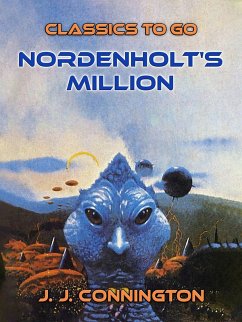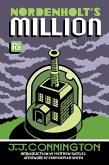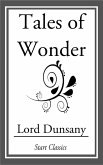Disaster novel in which denitrifying bacteria inimical to plant growth run amok and destroy world agriculture. The eponymous plutocrat Nordenholt constructs a refuge for the chosen few in Scotland, roofing over the Clyde valley. (Goodreads)
Dieser Download kann aus rechtlichen Gründen nur mit Rechnungsadresse in A, B, BG, CY, CZ, D, DK, EW, E, FIN, F, GR, HR, H, IRL, I, LT, L, LR, M, NL, PL, P, R, S, SLO, SK ausgeliefert werden.









